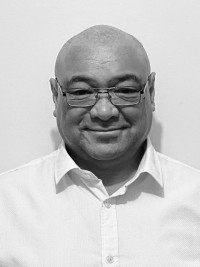New Ohu Mahi GM Whaikaha Disabilities looks for practical change
New Ohu Mahi GM Whaikaha Disabilities looks for practical change
They may only be seven words, but seven words that can influence lives, careers, and futures. “Look at the person, not the disability” – that is the message at the core of the work of the new Ohu Mahi (Workforce Development Councils) General Manager Whaikaha Disabilities, Roger Herangi.
They may only be seven words, but seven words that can influence lives, careers, and futures. “Look at the person, not the disability” – that is the message at the core of the work of the new Ohu Mahi (Workforce Development Councils) General Manager Whaikaha Disabilities, Roger Herangi.

Roger Herangi
Mr Herangi was appointed in mid-2022 and brings a wealth of skills and experience from both the health and education sectors to the newly established role. He talks to RoVE News about the challenges ahead.
RoVE News: Can you tell our readers a little bit about yourself?
Roger Herangi: I am a descendant of Waikato Tainui and lived with whanau from Ngāti Pikiao and Ngāti Porou in my early years. I live in Auckland with my partner who has two adult children, and I have four adult children and five mokopuna who all live in Wellington.
RoVE News: What do you see as the key challenges facing you in your new role?
Roger Herangi: This is a completely new role, so it is a little bit daunting to be honest. I feel very honoured and humbled to be appointed to this position and I hope I can make a real difference for tāngata whaikaha (the disabled community). I am mindful of the challenges ahead in this role, such as gaining agreement from all six WDCs on a plan and being able to pivot as priorities change. We want to address what we can do now, in a year’s time, in three years, in five years, and how we get more people on board with this kaupapa. People are struggling. I guess it’s about enabling Tangata Whaikaha to beat the odds and improve skills, gain qualifications, and enable whanau to support them and their learning and employment journey. Someone needs to make sure that outside of the learning journey, the rest of the system is working for them as well.
RoVE News: What are some of the insights you have gained from your previous roles?
Roger Herangi: As tāngata whenua, my experience of racism in Aotearoa and the language of struggle which is shared with tāngata whaikaha whānau as they manage challenges daily that most people would find overwhelming. The language of struggle for Tangata Whaikaha is aligned with racism, ageism, sexism, and has the same effect by creating underserved learners and barriers to enabling a good life. I am grateful to have been able to reconnect with a lot of people in the disability sector with whom I worked when I was with the Ministry of Health and National Health Committee, those relationships are really helpful. There are good people in the sector, and you come across some real inspirational stories.
RoVE News: What are some of the practical steps you can take from here?
Roger Herangi: Tāngata whaikaha are an untapped workforce. I’d like to see that changed. That can start right here through the new Workforce Development Councils as employers of choice for Tangata Whaikaha. WDCs can show other employers, yes, it can be done. We can lead by example to education providers and employers and provide tool kits, so they don't have to think too hard about what do they need to get or do to take someone on who has been disabled from engaging in learning and employment. There are many new possibilities out there with assistive technology and qualified support workers. The technology and support techniques are evolving rapidly for Tangata Whaikaha to enable good lives and live their best life.